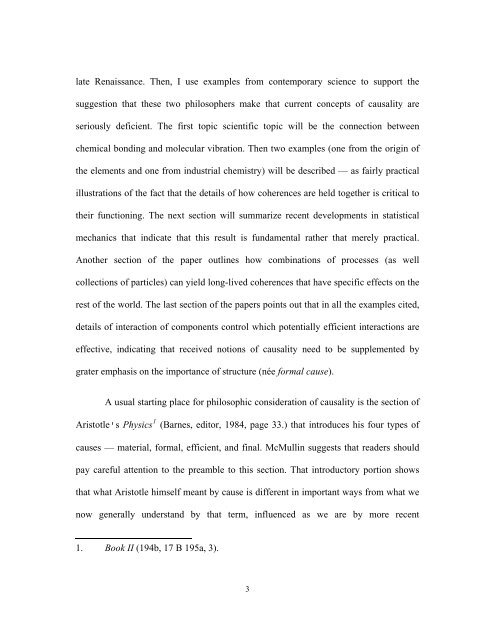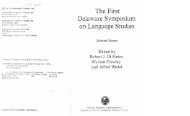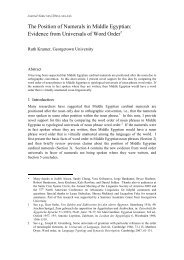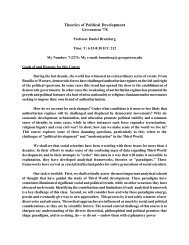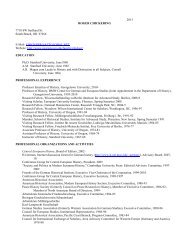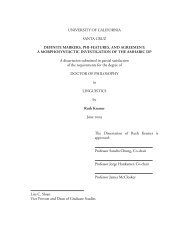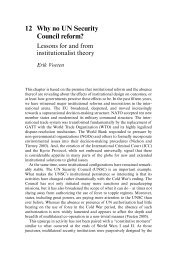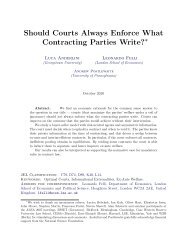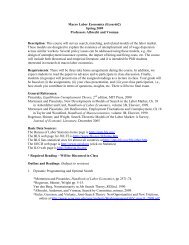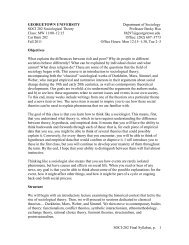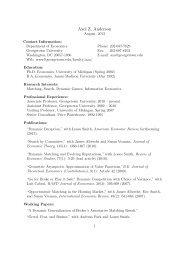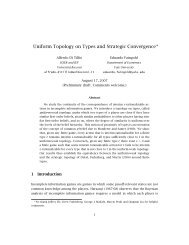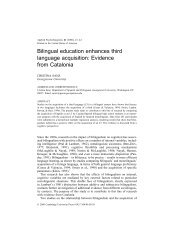On the Relevance of Repetition, Recurrence, and Reiteration.
On the Relevance of Repetition, Recurrence, and Reiteration.
On the Relevance of Repetition, Recurrence, and Reiteration.
Create successful ePaper yourself
Turn your PDF publications into a flip-book with our unique Google optimized e-Paper software.
late Renaissance. Then, I use examples from contemporary science to support <strong>the</strong>suggestion that <strong>the</strong>se two philosophers make that current concepts <strong>of</strong> causality areseriously deficient. The first topic scientific topic will be <strong>the</strong> connection betweenchemical bonding <strong>and</strong> molecular vibration. Then two examples (one from <strong>the</strong> origin <strong>of</strong><strong>the</strong> elements <strong>and</strong> one from industrial chemistry) will be described — as fairly practicalillustrations <strong>of</strong> <strong>the</strong> fact that <strong>the</strong> details <strong>of</strong> how coherences are held toge<strong>the</strong>r is critical to<strong>the</strong>ir functioning. The next section will summarize recent developments in statisticalmechanics that indicate that this result is fundamental ra<strong>the</strong>r that merely practical.Ano<strong>the</strong>r section <strong>of</strong> <strong>the</strong> paper outlines how combinations <strong>of</strong> processes (as wellcollections <strong>of</strong> particles) can yield long-lived coherences that have specific effects on <strong>the</strong>rest <strong>of</strong> <strong>the</strong> world. The last section <strong>of</strong> <strong>the</strong> papers points out that in all <strong>the</strong> examples cited,details <strong>of</strong> interaction <strong>of</strong> components control which potentially efficient interactions areeffective, indicating that received notions <strong>of</strong> causality need to be supplemented bygrater emphasis on <strong>the</strong> importance <strong>of</strong> structure (née formal cause).A usual starting place for philosophic consideration <strong>of</strong> causality is <strong>the</strong> section <strong>of</strong>Aristotle's Physics 1 (Barnes, editor, 1984, page 33.) that introduces his four types <strong>of</strong>causes — material, formal, efficient, <strong>and</strong> final. McMullin suggests that readers shouldpay careful attention to <strong>the</strong> preamble to this section. That introductory portion showsthat what Aristotle himself meant by cause is different in important ways from what wenow generally underst<strong>and</strong> by that term, influenced as we are by more recent1. Book II (194b, 17 B 195a, 3).3


